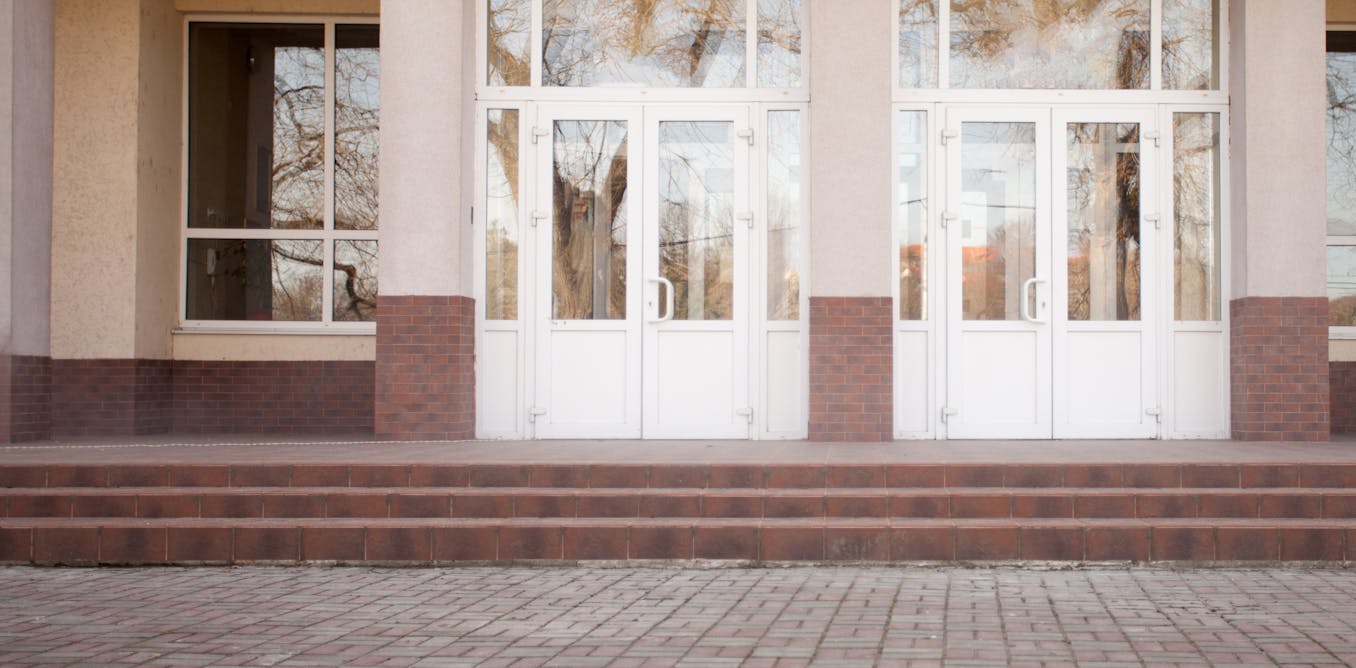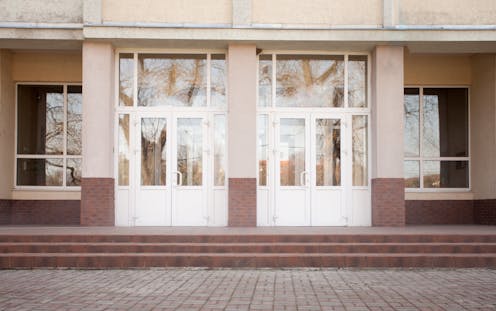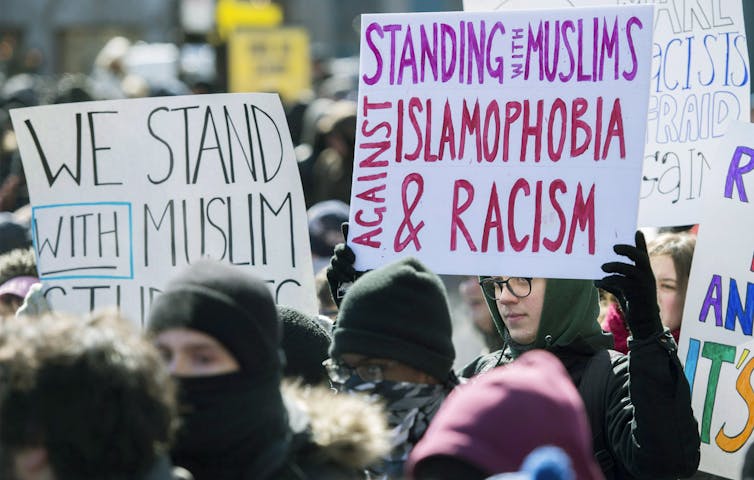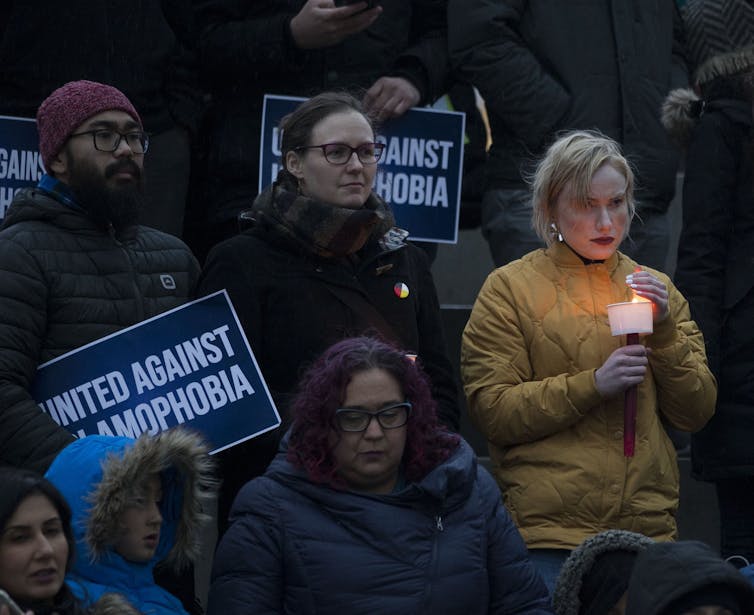Schools need to step up to address Islamophobia
Tackling Islamophobia as a form of racism even when Muslims aren’t visible is key.


The inspiration for this article was born of frustration and heartache. It follows the murders of four intergenerational members of the Afzaal/Salman family that left a nine-year-old child injured and orphaned in London, Ont., on June 6, 2021.
It also follows ongoing injustice related to state-sanctioned racism of Bill 21 in Québec and a rash of hate attacks in Alberta, most of them targeting Black Muslim women in hijab.
There is ongoing silence and erasure when it comes to anti-Muslim hate and Islamophobia in the education systems we and our loved ones inhabit.
Islamophobia: A form of racism
Although there is no one static understanding or definition of Islamophobia, we recognize it as a form of racism, structural and individual, that is rooted in long histories of empire and colonization.
The events of Sept. 11, 2001, in the United States have had deep, long-lasting reverberations for Muslims globally. While western narratives have framed Islam through the lens of orientalism for centuries, 9/11 triggered renewed forms of Islamophobia across sectors.

We should examine multiple dimensions of Islamophobia that build and shape realities of Muslim people through policy, social and economic structures and public representations across institutions and around the world. These manifestations shape the representations of Muslims, and their embodied experience of “Muslimness” in Canada.
It’s important to consider Islamophobia not only in daily hate crimes but also in daily indignities, silencing and injuries to Muslims’ sense of self and well-being.
There are common ways that educators, boards, senior leadership and the policies and curricula they support maintain the reality of Islamophobia in schools. These “evasions” are ways of escaping or avoiding addressing Islamophobia that allow us to maintain a sense of innocence and goodness, while denying complicity in perpetuating harms against Muslims.
Evasion 1: Excluding Islamophobia from discussions of racism
One way schools avoid addressing Islamophobia is by neglecting to explicitly name and address it in larger discussions of racism, xenophobia and oppression.
Common understandings of racism maintain narrow definitions of race as solely related to biology. But as sociologist Saher Selod explains, “racialization” is a process and act. It is articulated and enforced through cultural, political or legal narratives. Islamophobia is an outcome of the racialization of Muslims as an “other.”
While Islamophobia is a form of racism, it must also be understood that Muslim students hold multiple identities, including their socio-economic status, ethnicity and linguistic identity, as well as their gender and sexuality, along with other forms of racialization. As such, the specific way a Muslim student may experience Islamophobia is through the interaction of their multiple identities.
Read more: Celebrating diversity isn't enough: Schools need anti-racist curriculum
Such interconnected aspects of identity are related to broader systems of oppression, and as education researcher George J. Sefa Dei notes, anti-racist education should seek to respond to complex oppressions through intersectional analysis.
Evasion 2: Asserting we have a ‘secular’ society
The implicit belief that Canadians exist in a secular society with secular public institutions is widespread. But the institutions of Canadian society, including our schools, were built and now operate as if being Christian is the norm. Mainstream educational institutions continue to marginalize students (and their families) who are non-Christian as outside of national identity.
Public school curricula occasionally teaches about a religion, but largely avoids discussion rooted in faith and spirituality as part of identity and lived experience. Countering Islamophobia requires a critical examination of white supremacy, its Christian hegemony and racial power hierarchies.
Educating about Islam can be valuable in countering misinformation, but is insufficient to challenge Islamophobia.

Evasion 3: ‘We don’t have any Muslim students’
Naming, addressing and dismantling Islamophobia does not require the presence of Muslims. The assumption of “no Muslims here” should also be held lightly, as some families choose not to disclose their faith identity for a myriad of reasons, including protecting their children from anticipated racial targeting.
While the presence of self-identified and identifiable Muslim students and staff may mean there is an increase in instances of explicit Islamophobia, their visible presence in a school isn’t a precondition for the commitment to recognize and address this form of racism.
Evasion 4: ‘We have faith accommodations’
Faith accommodations can be viewed as an improvement from the explicit exclusion of Muslims from public spaces through claims of secularism. But “accommodating” within existing structures won’t address the Islamophobia in curriculum, policy or institutional culture.
Faith accommodations are often approached as a procedure (at best) or sometimes as a nuisance to “integrate” minority students. Rarely are they viewed as an opportunity to build relationships, to learn together or to transform schooling.
Evasion 5: ‘We don’t know enough’
Author and education scholar Bettina Love writes that if people believe that teaching against racism is important, they will commit to doing the work — including unlearning, learning and not waiting to be taught by people within communities who experience different forms of intersecting violence.
Too often, Muslim students and colleagues are forced to become “ambassadors” of their faith tradition because the adults around them assert that they don’t know enough about Islam and Islamophobia.
Evasion 6: Excusing Islamophobia as ‘free speech’
Muslim scholars, feminists, theorists and clergy have long engaged in study, analysis, debate and critique in understanding Islamic scripture, practices and histories. As in all faith communities and traditions, there has always been and continues to be vibrant dialogue and reflection within Islam. Muslim communities hold a plethora of understandings and modes of religious practice. Insisting that Muslims homogeneously subscribe to a fictional singular (medieval) understanding of Islam is a cornerstone to Islamophobia.
Too often an invitation to debate “about Islam” and “Muslim life” in classrooms is informed by sources promoting this perspective. This results is Islamophobic targeting and harassment — sometimes even led by or in the presence of teachers — that is dismissed as “free speech.”

New stories urgently needed
These evasions are just some of the ways Islamophobia is perpetuated through silences and omissions in school systems. Potential ways of living out different stories in school systems include:
Recognizing how Islamophobia is present, even when Muslim students and staff aren’t. Like other forms of racism, Islamophobia is always operating in various structures, curricula, language and beliefs.
Addressing and removing barriers to meaningful inclusion. Go beyond accommodating and move towards designing spaces and systems in ways where every student feels they belong and matter. This necessarily entails co-creating life-giving and sustaining spaces that affirm spirituality and faith, even when schools claim to be secular.
Teaching against Islamophobia needs to be explicit, purposeful and integrated in anti-racist work. We believe all educators have an ethical responsibility to work towards becoming co-conspirators and disrupt anti-Black, anti-Indigenous, Islamophobic, homophobic, transphobic, misogynistic and ableist systems. School systems cannot wait for this to happen organically. Anti-racist and anti-oppressive education must become a guiding ethic and expectation in all educational institutions.
Commit to doing the work
In planning this article, we asked, “What will it take for education systems (and the people leading and within them) to finally take Islamophobia seriously?”
Too often, being Muslim is seen as being incompatible with public life in Canada. We want better for ourselves, our children and all children, youth, families, caregivers and educators who live and work within these systems.
Educators and school systems cannot continue to evade facing, interrupting and dismantling Islamophobia. They must step up and commit to doing the work.![]()
The authors do not work for, consult, own shares in or receive funding from any company or organization that would benefit from this article, and have disclosed no relevant affiliations beyond their academic appointment.
What's Your Reaction?






























































































